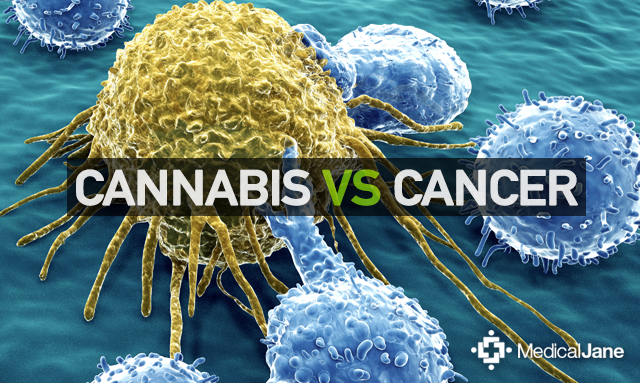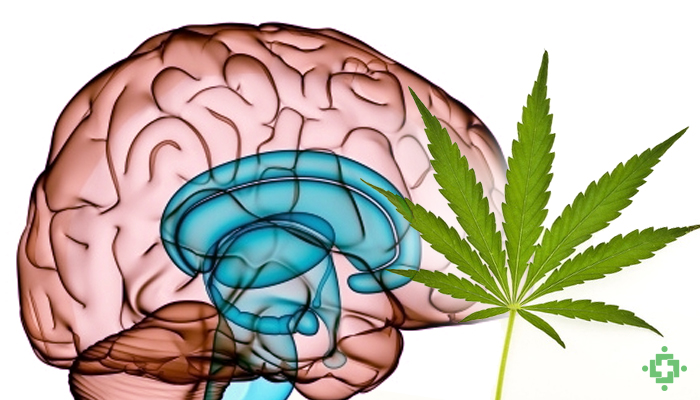Brain Cancer
ShareTweet
Quick Jump
What is Brain Cancer
Brain cancer is a disease of the brain in which cancer cells (malignant) arise in the brain tissue. Cancer cells grow to form a tumor that interferes with brain functions such as muscle control, sensation, memory, and other normal body functions. Cancer cells that develop from brain tissue are called primary brain tumors while tumors that spread from other body sites to the brain are termed metastatic or secondary brain tumors. Learn more
Latest Research
November 29, 2014
Study: Cannabis Offers Possible Treatment for High Grade Gliomas
A study published in November 2014 in Molecular Cancer Therapeutics and conducted at St. George’s University of London’s Department of Oncology has found that the use of cannabinoids, specifically delta-9-tetrahydrocannabinol (THC) and cannabidiol (CBD), may be useful in treating high-grade gliomas, potentially slowing the disease’s progression. What Are High Grade Gliomas? Gliomas are a type of advanced brain cancer that are fast-growing, aggressive, and difficult to treat. Gliomas occur in the brain and spinal cord and result from the excessive proliferation of abnormal neuroglia, cells of the nervous system that are not …
December 18, 2013
Cannabis vs. Cancer: Studies Suggest Cannabinoids May Kill Human Cancer Cells
There is currently an overwhelming amount of evidence suggesting that cannabinoids may kill cancer in humans. For the past several years, an increasing number of patients have been reporting that ingesting or applying cannabis-based extracts topically eliminated their cancers. Cases of terminal cancer patients going into remission are documented, along with many non-terminal cases. Photographic evidence has shown many skin cancers disappear with topical application as well. Moreover, scientific research indicates not only that …
November 29, 2013
Study: Cannabidiol (CBD) May Inhibit Brain Cancer
Glioma is the term used to describe a tumor that originated on the brain or spine. Each year, 10,000 Americans are diagnosed with malignant glioma. Of those, about half will die within a year of diagnosis. Only 25 percent are still alive after two years. Researchers Investigated Glioma & Its Reaction To Cannabinoids Most often occurring in the brain, malignant gliomas are rarely curable despite years of research on the subject. Traditional therapies like radiotherapy and chemotherapy have had limited success, and glioma’s ability to spread to normal tissue makes surgery difficult. “Each year, 10,000 Americans are diagnosed with malignant …
November 13, 2013
GW Pharmaceuticals Begins Trials On Treating Brain Cancer With Sativex
First Clinical Trial For Cannabis-Based Cancer Therapy GW Pharmaceuticals, based in the UK, announced Monday that they have commenced phase 1b/2a clinical trials to study the potential benefits of Sativex in the treatment of Recurrent Glioblastoma Multiforme (GBM) – an aggressive form of brain cancer that accounts for 50% of new US brain cancer diagnoses. “GW Pharmaceuticals becomes the first entity to conduct clinical research on cannabis-based cancer treatment with humans.” For those unfamiliar with it, Sativex is an sublingual spray that was scientifically formulated to contain a 1:1 ratio between tetrahydrocannabinol (THC) …
July 23, 2013
Study: THC Encourages Neuroplasticity In The Brain
THC Can Protect From Brain Deficits Cannabis research has continued to grow in popularity in recent years, and it has recently been suggested that tetrahydrocannabinol (THC) offers protection for the brain. In a study published in September 2012, researchers intentionally caused injuries to the brains of mice with: Repeated exposure to MDMA (ecstasy) Carbon monoxide exposure Anesthesia caused by pentobarbital, an anesthetic which is sometimes used for execution. They also administered a single ultra-low dosage of the cannabinoid THC (.002mg/kg) either: 1-7 days before the …




